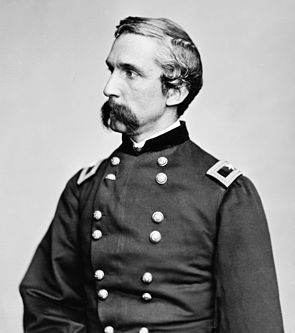 Joshua Chamberlain is best remembered as the hero of the battle of Little Round Top at Gettysburg. Today I want to remember him as the author of a remarkable letter.
Joshua Chamberlain is best remembered as the hero of the battle of Little Round Top at Gettysburg. Today I want to remember him as the author of a remarkable letter.
A Bowdoin College professor, Chamberlain possessed no formal military experience when he enlisted after the outbreak of the Civil War. However, he proved himself a quick study in the art of leadership, rapidly rising to the rank of colonel of the 20th Maine.
The young leader established himself an able field commander. His clear thinking, personal courage, and command presence under fire were critical in repulsing the Alabama 15th’s attempt to take Little Round Top on July 2, 1863. Had the Confederates succeeded, leaving the Union left flank exposed, the withdrawal of the northern army from Gettysburg would have been all but certain.
A year later, on June 18, 1864, Chamberlain suffered a severe abdominal wound at Petersburg while leading a charge that he had strongly urged General Grant to forgo. The primitive state of medical care left him with almost no hope of recovery. The next day, believing his death imminent and in excruciating pain, he penned this beautiful letter to his wife:
“My darling wife I am lying mortally wounded the doctors think, but my mind & heart are at peace. Jesus Christ is my al-sufficient savior. I go to him. God bless & keep & comfort you, precious one. You have been a precious wife to me. To know & love you makes life & death beautiful. Cherish the darlings & give my love to all the dear ones. Do not grieve too much for me. We shall all soon meet. Live for the children. Give my dearest love to Father, Mother & Sallie & John. Oh how happy to feel yourself forgiven. God bless you evermore precious precious one. Ever yours, Lawrence.”
The wounds Chamberlain suffered at Petersburg led directly to his death – 49 years later on February 24, 1914! In the meantime, he continued to teach, eventually becoming president of Bowdoin College and serving a four-term governor of Maine. He was believed to be the last Civil War veteran to die of wounds received during the conflict.